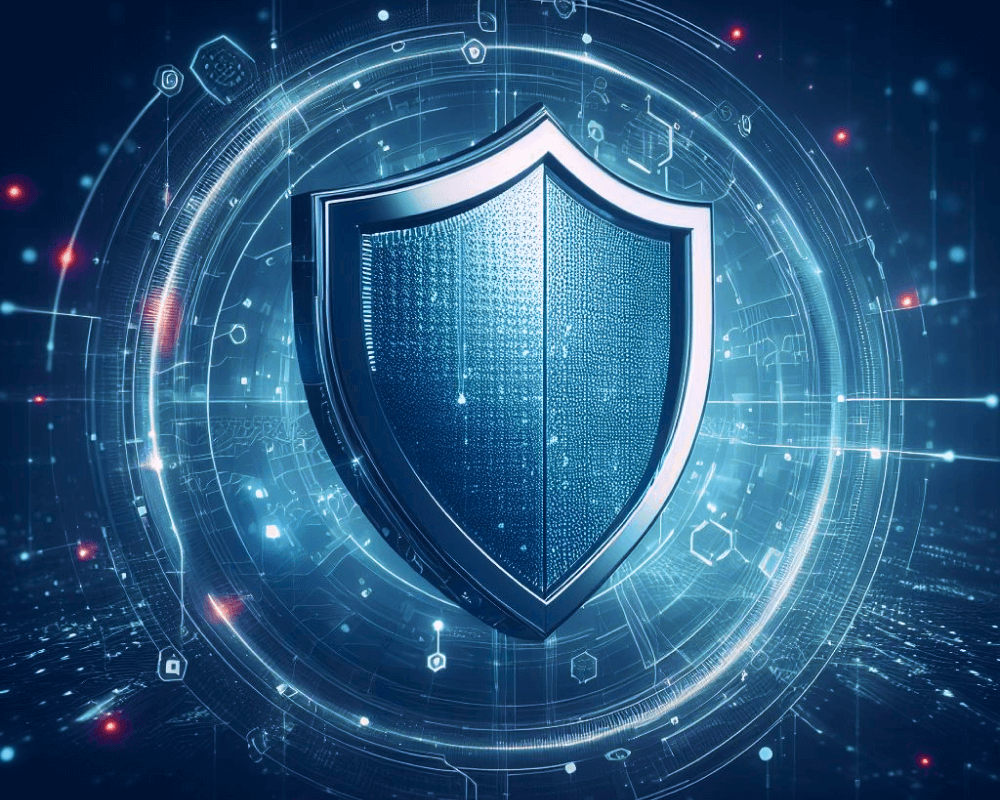December 1, 2023 By: JK Tech
today’s digital age, the landscape is more dynamic than ever, but with innovation comes an escalating wave of cybersecurity threats. Cybersecurity incidents pose a significant risk to businesses worldwide. An analysis revealed that 50% of small businesses took more than 24 hours to recover from an attack. More than 51% of small businesses cited an inaccessible website for up to 24 hours in a survey. SMBs spend on average $826 to $653,587, and within five years, cybercrime costs will reach 10.5 trillion for the first time. This surge in threats and costs underscores the critical importance of robust cybersecurity measures for businesses.
Why Cybersecurity Matters?
a hyper-connected world, where data is the lifeblood of enterprises, safeguarding against cyber threats is not just an option; it’s a necessity. A breach can result in not only financial losses but also irreparable damage to reputation and trust. Therefore, addressing cybersecurity isn’t merely a defensive move; it’s a strategic imperative for long-term success.
Now, let’s delve into the key measures businesses should adopt to fortify their defenses:
1. Workforce Training: Having a well-informed workforce is the primary line of defense against cyber threats. Workers at small companies are more vulnerable to social engineering attacks compared to their counterparts at larger organizations, experiencing as much as 350% more incidents. Equip your employees with the knowledge to recognize phishing attempts, use secure passwords, and understand the importance of regular updates. To maintain a secure digital environment, it’s crucial to conduct regular training sessions. This ensures that your team is not only aware but also actively engaged in the process.
2. Robust Password Practices: Passwords are the keys to your digital kingdom. It is vital to emphasize the importance of using strong and individual passwords and to enable multi-factor authentication to enhance security measures. Encourage a culture of password hygiene, where employees regularly update and strengthen their credentials. This simple yet effective measure adds an extra layer of protection against unauthorized access.
3. Regular Software Updates: Outdated software is a vulnerability waiting to be exploited. Ensure that all systems, applications, and security protocols are up to date. Automated updates can streamline this process, minimizing the risk of exploitation through known vulnerabilities. Timely patching is a proactive defense that significantly strengthens your cybersecurity posture.
4. Data Encryption: Encrypting sensitive data adds an additional layer of protection, rendering it unreadable to unauthorized users. Whether data is in transit or at rest, encryption acts as a safeguard, mitigating the potential damage of a security breach. Implementing robust encryption protocols is fundamental to securing your most valuable assets.
5. Incident Response Plan: Despite best efforts, breaches may occur. Creating a comprehensive and well-structured plan for incident response is absolutely critical. Outline clear procedures for identifying, containing, eradicating, recovering, and learning from security incidents. A swift and coordinated response can minimize the impact of a breach, protecting both data and reputation.
6. Network Security: Safeguarding your network is paramount. Implement firewalls, intrusion detection systems, and virtual private networks (VPNs) to create a secure perimeter. Regularly monitor network traffic for anomalies, providing an additional defense against unauthorized access and data breaches.
7. Vendor Risk Management: As businesses increasingly rely on third-party vendors, it’s essential to assess and manage their cybersecurity posture. Ensure that vendors adhere to robust security practices, conduct regular audits, and establish clear expectations for data protection. A chain is only as strong as its weakest link; extending security measures to vendors fortifies the entire ecosystem.
8. Cybersecurity Audits and Assessments: Regularly assess your cybersecurity measures through audits and assessments. Identify vulnerabilities, evaluate the effectiveness of existing controls, and adjust your strategy accordingly. This proactive approach helps you stay ahead of emerging threats and ensures continuous improvement in your cybersecurity defenses.
9. Employee Access Controls: Limiting access to sensitive information is a key principle of cybersecurity. Implement role-based access controls to ensure that employees only have access to the data necessary for their roles. Regularly review and update access permissions, especially when employees change roles or leave the company, to minimize the risk of insider threats.
10. Security Awareness Campaigns: Ongoing communication is crucial in maintaining a cybersecurity-aware culture. Launch periodic awareness campaigns to keep employees informed about the latest threats, security best practices, and the importance of their role in maintaining a secure environment. An informed workforce serves as a collective shield against potential cyber threats.
11. Cybersecurity Insurance: vest in cybersecurity insurance for financial protection in case of a security breach. This coverage helps manage costs for data recovery, legal issues, and reputation damage. Only 17% of small businesses have cyber insurance and a significant 64% lack awareness of it. Recognizing cybersecurity insurance as an extra layer of defense is crucial for comprehensive protection. Regularly review and update your coverage to align with evolving cyber risks and your business’s specific needs. Stay informed and proactive to enhance your overall cybersecurity strategy and protect your small business from potential threats.
In the relentless landscape of cyber threats, adopting a multi-faceted cybersecurity strategy is not just a precaution; it’s a business imperative. From empowering employees through training to fortifying networks and conducting regular assessments, each measure contributes to a comprehensive defense. By integrating these practices into the fabric of your business, you not only protect valuable assets but also cultivate a resilient foundation for sustained success in the digital era. Stay secure, stay vigilant.



